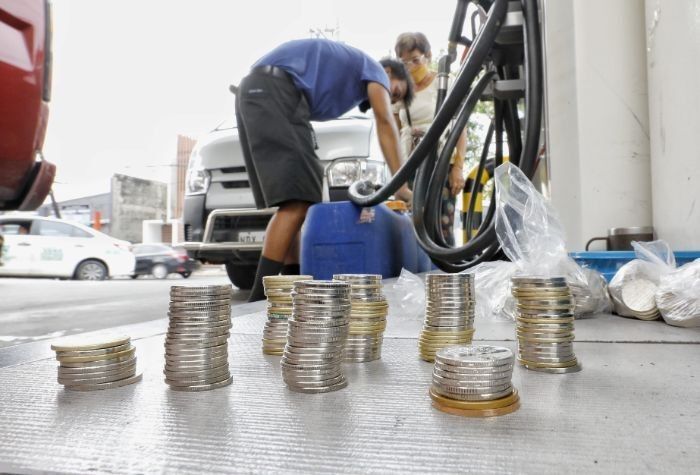Oil Price Stabilization Fund revival will work against the poor — state think tank

MANILA, Philippines — State think tank Philippine Institute for Development Studies (PIDS) said Thursday that reviving the Oil Price Stabilization Fund (OPSF), a now-defunct buffer against sudden surges of oil prices, is an "anti-poor" measure which is seen to mainly benefit those who can use up large amounts of petroleum.
This week, domestic oil companies announced another big-time price hike in their petroleum products shortly after the government reported that inflation further quickened to 5.4% in May.
When the OPSF was in place, oil companies contributed to it when the crude prices in the world market were low, and drew from it when crude prices were high. The government partially subsidized the OPSF, which led to a budget deficit.
The OPSF, established under the administration of President Ferdinand Marcos Sr., was abolished in 1996. Nearly two decades later, his son, president-elect Ferdinand "Bongbong" Marcos Jr. has proposed setting up another OPSF in a bid to help consumers, rather than removing the fuel excise taxes on imports.
"Reviving the OPSF, I think, will be anti-poor...It is usually the rich who consume a higher volume of petroleum. The subsidy from the poor will disproportionately benefit the rich more than the poor," PIDS Senior Research Fellow Adoracion Navarro said in a briefing on Thursday, citing her recently-published study.
She added that bringing back the OPSF may cause the government to shell out more for it by using other funds intended for anti-poverty programs.
"I think programs on targeted assistance to the poor is preferable to the OPSF," she said.
Since the start of the year, pump prices have been rising due to developments in the world market, such as the geopolitical war between Ukraine and Russia.
The continuous increase in fuel prices prompted the government to roll out subsidies for affected sectors, including those in the transportation, agriculture and fisheries industries.
Reacting to Navarro's presentation, Department of Energy-Oil Industry Management Bureau Director Rino Abad said there was indeed "fiscal harm" in maintaining such a fund.
For Philippine Institute of Petroleum (PIP) Executive Director Raphael Capinpin, the OPSF did not serve its purpose.
"Three of our members were participants in that era and all agree that the frequent changes in the funds' roles and deviation from its intended purpose led to it to not accomplishing its objectives," he said during the event.
RELATED: Oil firms press gov’t on OPSF claims
He added that the government's money is better spent for other essential social services.
The Philippines is heavily dependent on the world oil market, which is affected by developments in other countries. Sentiments and speculations drive oil price adjustments, the Energy department has said.
Just this week, gas rose by P2.7 per liter; diesel climbed by P6.55 and kerosene jumped to P5.45 per liter.
READ: P100 per liter of gas? DOE says that's unlikely
'Beefed-up MIR will not lower prices'
PIP's Capinpin debunked the notion that increasing the minimum inventory requirements (MIR) for oil companies will lead to lower fuel prices.
He explained that Philippine oil firms do not practice inventory-based pricing, which involves setting prices based on the cost of one's inventory.
"What is practiced in the Philippine downstream oil industry is a pricing condition which is called week minus one. Average trading prices for the current week as reported in Mean of Platts Singapore is compared to the average trading prices of the previous week, and the difference among others is reflected the week after," Capinpin said.
The Mean of Platts is the pricing yard stick for refined oil products in Southeast Asia.
Sen. Sherwin "Win" Gatchalian, who chairs his chamber's energy committee, suggested in March that the state should consider increasing the MIR by 15 days in hopes of cushioning the impact of the consistent rise in oil prices.
The Energy department requires oil companies, except for refiners, to secure a MIR of 15 days for petroleum products, excluding liquified petroleum gas.
On the other hand, oil refiners have to ensure enough crude oil and refined petroleum product reserves which can last for 30 days.
- Latest
- Trending
































